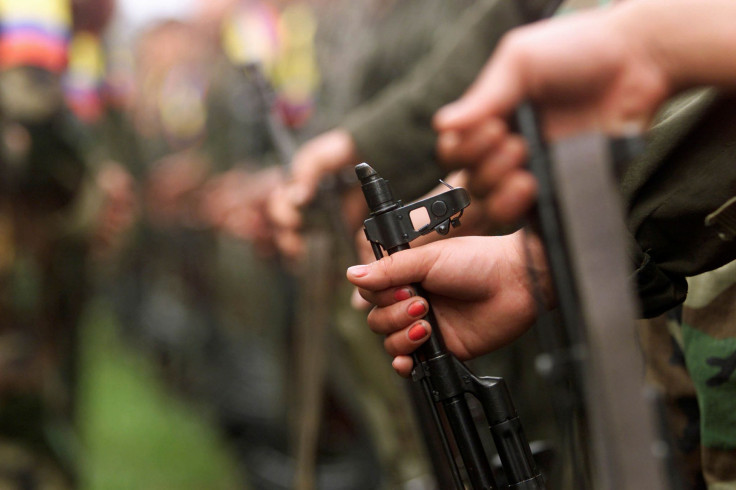After Colombia-FARC Peace Talks Lead To Truce, Questions Remain About Agreement Becoming Law

After 52 years of war and bloodshed, the Colombian government and the Revolutionary Armed Forces of Colombia (FARC) announced that a peace deal has been made. The ceasefire negotiations started four years ago and a formal announcement is slated to be made in Havana, Cuba on Thursday afternoon.
“A deal is imminent to close the negotiations,” said a Colombian official to reporters, according to The Washington Post.
While the smaller details are still being worked out, the major issues have reportedly been addressed. According to the peace agreement, FARC armed forces would dissolve and reintegrate them into society.
"We are at the doors of important announcements that bring us close to the final deal,” said FARC leader Timolean Jimenez on Twitter.
President Juan Manuel Santos will sign the deal in Colombia and the milestone moment will be commemorated with a high-profile ceremony. Once signed, a national referendum will determine whether the peace accord will become law. Santos, who worked on the negotiations, will be campaigning for Colombian voters to cast a ballot in favor of the agreement. His political opponents, who argue the deal will give FARC leaders immunity for their crimes, are advocating that citizens vote against the agreement.
Ultimately, the future of the peace agreement will lie in the hands of voters. Al Jazeera reports that most opinion polls on the matter indicate Colombians will be in support of the deal, but The Associated Press is reporting mixed results. Should the deal pass, FARC will have 180 days to disband its 7,000 fighters.
The conflict between the government and guerrilla group has left nearly 50,000 missing, claimed more than 250,000 lives and displaced almost seven million citizens from their home over the past 50 years.
© Copyright IBTimes 2024. All rights reserved.












